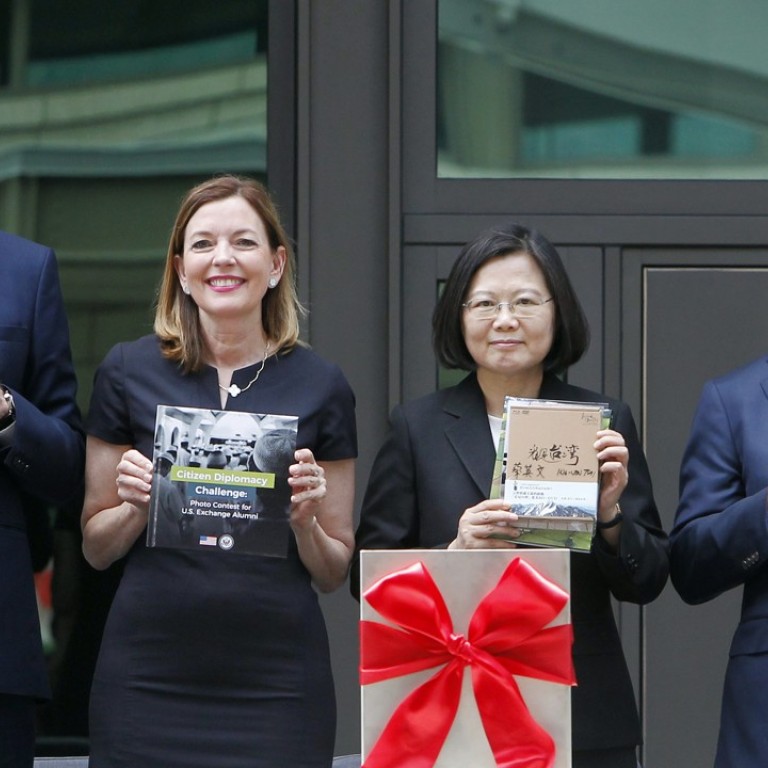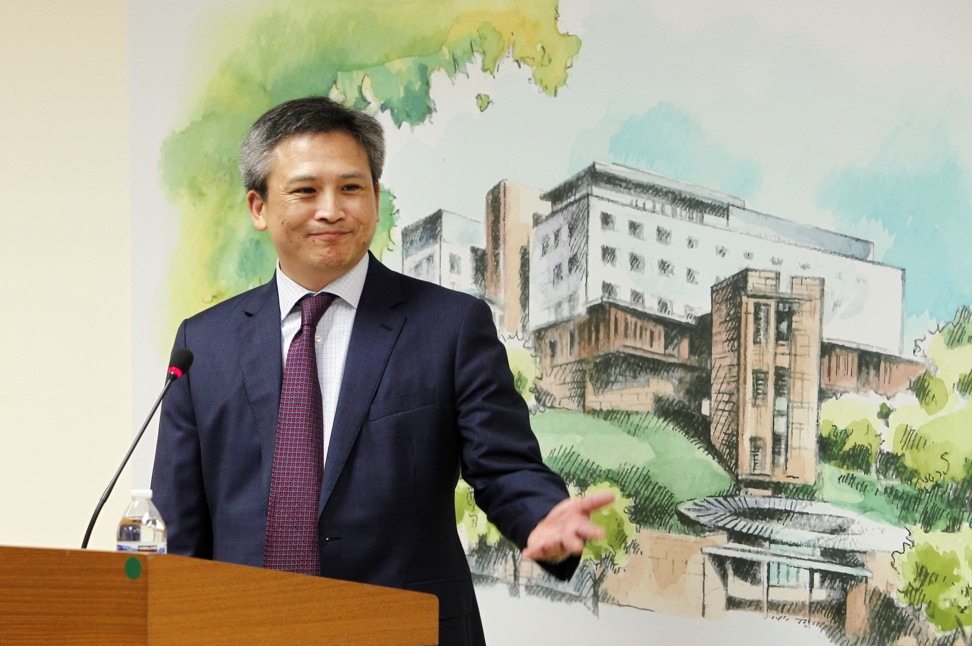
Beijing looks for clues on US-Taiwan ties as Washington set to name new ‘ambassador’ to Taipei
United States unveiled its new de facto embassy – the American Institute of Taiwan – last week, but has yet to appoint its chief
Beijing will be looking for clues to any possible changes in Washington’s policy on Taiwan – one of the most sensitive issues in their bilateral relationship – when the US appoints a new head of its de facto embassy in Taipei, analysts said.
While Kin Moy, the incumbent director of the American Institute of Taiwan (AIT), is set to step down in the coming weeks after almost three years in charge, the office has yet to announce who will succeed him. A dedication ceremony for the mission’s new office in Taipei’s Neihu district was held last week.
Yang Lixian, from the Research Centre on Cross-Strait Relations in Beijing, said the mainland would be wary if Kin’s replacement had held a higher level position in Washington or had a history of taking an anti-Beijing stance.
“If there is an obvious change in the role of the AIT after the new person is appointed, it would be a direct challenge … and Beijing would respond to that,” she said.
“But looking at the bigger picture, as long as Washington sticks to the one-China policy and the AIT continues to operate as a civil, rather than diplomatic, organisation, the appointment would not be seen as having any real significance.”
The matter of naming a successor in Taipei is not as straightforward as it might seem, however. US Secretary of State Mike Pompeo currently has more than 50 posts for ambassadors and other senior envoys to fill around the world.
Moy has tried to quell any concerns Beijing might have, saying he had every confidence that the AIT leadership transition would be smooth, and that there would not be any noticeable interruptions.
“Whoever takes over my post, I believe he or she will be warmly welcomed by the people of Taiwan,” he said at a press conference in late May.
“Just like three years ago, there was a really smooth transition between my predecessor’s departure and my arrival.”
Relations between Beijing and Taipei have been complicated by new regulations in Washington that allow senior US officials to visit Taiwan, as well as the relaxation of rules governing US defence contractors’ dealings with their Taiwanese counterparts.
Sino-US ties, meanwhile, have been strained by their tit-for-tat trade conflict and the South China Sea issue.
Despite the turbulence, most analysts believe the US is unlikely to significantly change its policy on Taiwan.
Beijing regards Taiwan as a renegade province that broke away from the mainland at the end of the civil war in 1949.
Washington switched its formal diplomatic ties from Taipei to Beijing in 1979 and while it adheres to the one-China policy, it also maintains a strategic alliance with Taiwan, which includes the sale of arms to the self-governed island and a pledge to protect it in the event of any military conflict.
“On the AIT issue, we can see that the US has exercised self-restraint,” said Liu Fu-kuo, a researcher at the Institute of International Relations in Taipei.
The fact that Washington sent only relatively low ranked officials to attend the AIT dedication ceremony was significant, he said.
“The US understands the situation, so they were more low profile … it was a diplomatic protocol to show it values the new AIT office, but … because of the North Korea issue and possibility of a China-US [trade] war, it [Washington] has been weighing up whether it is worth further provoking Beijing.”
Whatever Washington’s motivation for sending the delegation it did to Taipei – the dedication ceremony on June 12 also coincided with US President Donald Trump’s summit with North Korean leader King Jong-un in Singapore – its apparent restraint was not enough for Beijing
China’s foreign ministry said that the presence of any US officials at the AIT event “whatever their excuse … violates the one-China principle”.
Speaking at the ceremony, AIT chairman James Moriarty declined to confirm rumours that former AIT deputy director Brent Christensen was set to succeed Kin.
A former director of the State Department’s Office of Taiwan Coordination in Washington, Christensen served as deputy director of the AIT from 2012 to 2015.
Additional reporting by Kinling Lo and Lawrence Chung


